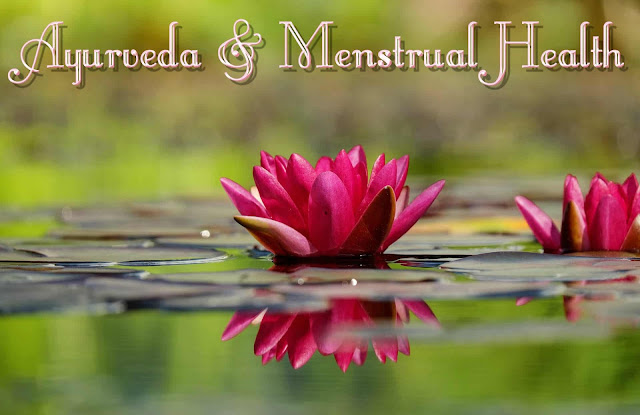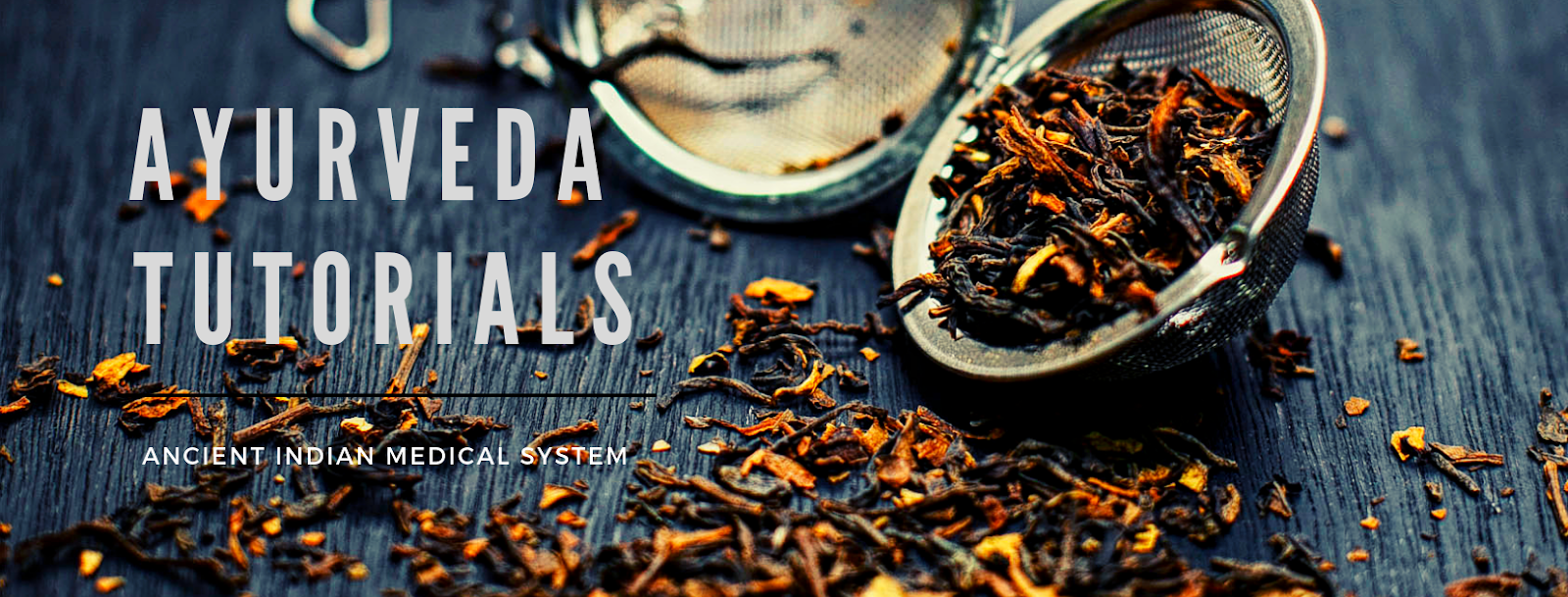 |
| Photo by Ilona |
Menstruation is cyclic process that repeats every month in reproductive age of women. During menstruation blood, cervical mucus, vaginal secretions, and endometrial tissue are being thrown out of the body.
Menstruation is a natural time of detoxification and rejuvenation. Its purpose is not only to prepare the body for conception and pregnancy but also to cleanse toxins and metabolic wastes out of the body. Women are believed to be healthier and to outlive men because of its cleansing effect.
During menstruation, Vata is the predominant dosha. Apana Vata, one of the elemental air functions of the Vata Dosha, is responsible for the downward flow of menstruation, urination, elimination and ejaculation. It is located in the lower abdomen. The seat of Apana Vata is the Muladhara chakra, or the root chakra.
Since its function is downward movement of wastes and menstrual fluid, any activity that interferes with this necessary downward flow of energy during menstruation should be avoided. Therefore, inversion yoga poses and sex during menstruation affect a woman’s natural energy flow.
Making Apana move upwards during menstruation, will interfere with the menstruation process and will create an imbalance.
Ancient Ayurvedic texts explain that if a woman conceived during the menstrual sex, the fetus may suffer intrauterine death or have some deformities. Getting pregnant on your period is less likely but still statistically possible. Sexual intercourse during menstruation can also cause menstrual disturbance, gynecological inflammations and even future miscarriages.
Spiritual and religious practice, extreme talking and too much laughing should also be avoided during menstruation since it causes upward movement of Apana Vata.
The reason many women experience frequent urination, loose stools or frequent bowel movements is because Apana controls the muscles responsible for releasing menstrual fluid, urine and poop. And during menstruation Apana is very active. It also releases repressed emotions such as anger, frustration, irritation, mood swings, etc. to which menstruating women are more exposed to.
During menstruation, the woman’s digestive fire Agni is very weak. Agni is responsible for whole process of digestion and absorption in gastrointestinal tract. This is the reason why menstruating women should eat simple, easy to digest, seasonal and cooked foods rich in iron and calcium.
 |
| Photo by Nicole |
Ayurveda and Hinduism celebrate menstruation as sacred festival. The first menstruation is celebrated as a respected and positive aspect of a girl's life.
Ritu Kala Samskara is an Hindu ceremony performed when a girls gets her first menstruation. It is the celebration of the girl becoming a young woman both physically and spiritually.
Keddaso is unique ancient festival of worshiping Mother Earth in the region of South India. It is believed that Earth is a woman and her annual transitional period is comparable to the menstrual period in women. The three day festival celebrates the transition of seasons and initiation of cropping season.
Since menstruation is self purifying process, it is suggested in holy Vedic scripts that a woman who wants to pursue her spiritual development, should not comb her hair, wear makeup, perfume or jewelry, cut hair or nails and that she should sleep on the ground during menstruation.
These restrictions will help her to develop detachment from material things, control over senses and purification of the mind.
There are many different rituals and activities for men also to attain purification and spiritual growth.
Menstruating women have weaker immunity. It is advisable to take a rest during menstruation to attain overall well-being. In Vedic culture, women are kept distant from all housework until they stop bleeding. Some amount of Ojas, the essence of all bodily tissues, is also lost during menstruation. Read more about Ojas here: How To Build Ojas - Fluid Of Vitality
Characteristics Of Healthy And Unhealthy Menstrual Cycle
According to Ayurveda, menstrual cramps are not normal. Your menstruation should be painless, comfortable, bright red in color, without clots, without burning sensation and it should have odor that is not foul. Menstrual blood should not stain clothing after washing. Bleeding should be continuous and last 3-5 days.
These are characteristics of balanced Doshas and no presence of Ama (toxins) in the body. Any imbalance in Doshas will cause abnormal menstruation.
Healthy menstrual cycle should be in line with the lunar cycle. Women's menstrual cycle is related to the movements of the moon. Both lunar cycle and menstrual cycle are 28 days long.
The healthiest menstrual flow will start on a new moon with ovulation occurring on the full moon. Read more about this topic here: Healing Power Of Moonlight And Moonbathing.
Girls who start menstruating at age of 11 or younger are at high risk of developing painful menstrual cramps and excessive uterine bleeding.
 |
| Photo by Anita Austvika |
Typical symptoms of Vata dosha imbalance during premenstrual and menstrual period are pain and stiffness in waist, groin, cardiac region, sides, lower abdomen, lower back and pelvis, mood swings, anxiety, scanty flow, irregular cycle length, dark color of blood, spotting before or after the flow, constipation and insomnia.
Typical symptoms of Pitta dosha imbalance during premenstrual and menstrual period are anger, irritation, acne, sweating, increased body temperature, headache, diarrhea, heavy bleeding, food cravings, burning sensation, excessive thirst, foul smelling blood and swollen breasts.
Typical symptoms of Kapha dosha imbalance during premenstrual and menstrual period are heavy, pale, slimy and long flow with clots in the blood, lethargy, water retention, abdominal bloating, increased sleep, emotional eating, depression and yeast infections.
Any imbalance in the Doshas will lead to an imbalance in the woman's reproductive physiology, which would in turn affect the health of a woman, including her capacity to conceive.
"Menstrual blood which smell like a putrid corpse or fetid pus, or which is clotted, or is thin, or emits the smell of urine or fecal matter, should be deemed as being beyond remedy, and the rest being amenable." (Sushruta Samhita Sharirasthana 2.4)
Ayurvedic classical texts Charaka Samhita, Sushruta Samhita, Ashtanga Sangraha, Ashtanga Hridaya and Kashyapa Samhita had provided detailed physiology of menstruation which gives various aspects than that of mentioned in modern science.
Charaka and other Ayurvedic authorities described around 20 different gynecological disorders 5000 years ago.
Ayurveda divides the entire monthly cycle into three phases: Rutukala, Rutuvyatitakala and Rajahsravakala,.
Rutukala refers to the proliferative phase during which follicles inside the ovaries develop and mature in preparation for ovulation. This phase is considered to be of a duration of 12-16 days and is dominated by Kapha Dosha, which governs regeneration and growth.
Rutuvyatitakala refers to various hormones and nutrients that are secreted in anticipation of nourishing the embryo if conception were to take place. This phase will exist for a duration of 9-13 days and is dominated by Pitta Dosha, which governs all secretion activities in the body. It always act through medium of blood. Therefore this phase resembles the secretory phase .
Rajahsravakala is the actual phase of menstruation, where the menstrual blood along with the endometrium is shed from the body. blood is collected through the blood vessels of uterus within a period of 28 days and brought downward to vaginal orifice for excretion. This phase exists for a duration of 3-5 days and is predominated by Vata Dosha, which governs all movement within the body.
State of these three Doshas will determine whether a woman will undergo normal or abnormal menstrual cycle. They will also affect the health of the child conceived during ovulation.
How To Prevent Menstrual Disorders
Rajaswala Paricharya is Ayurvedic set of rules to follow to keep reproductive system healthy and prevent any health defects in the child, in case any conception happens.
- Try to follow Ayurvedic Daily Routine and Night Routine For Restful Sleep, at least 10 days before your period.
- Eat light and easily digested foods during menstruation.
- Eat foods appropriate climate and altitude you live in.
- Follow a proper diet to balance Vata, Pitta and Kapha dosha. Here is The Ultimate Ayurvedic Grocery List For All Doshas.
- Choose pads instead of tampons.
- Take a rest as much as you can during menstruation.
- To relieve pain, place the hot water bottle on the lower abdomen.
 |
| Photo by Marisa Harris |
- Drink warm ginger tea to ease bloating. Avoid it if you have a heavy flow and make this Homemade Ayurvedic Detox Tea instead.
- When not on menstrual cycle practice yoga, pranayama and self massage.
- During your period, take showers instead of bath.
- Vaginal steam baths are done in case of infertility, irregular or painful menstrual cycle, fibroid, ovarian cysts, uterine prolapse, yeast infections, endometriosis, hemorrhoids, constipation or pain during intercourse. It is also used to cleanse and revitalize the uterus and to maintain healthy fertility. Read more: How To Do Vaginal Steaming At Home.
- Nabhi Vasti is a simple and safe treatment commonly used in Vedic medicine for balancing the menstrual cycle. Here is step-by-step tutorial: Nabhi Vasti Treatment.
- Try Moonbathing.
- Unbalanced root chakra or sacral chakra can cause menstrual and fertility issues. Read here how to easily balance your chakras: Root Chakra - The Foundation Of All Chakras and Secrets Of Sacral Chakra.
- Avoid raw food, meat, fish, eggs, junk food, caffeinated tea, coffee, alcohol, cold drinks, and don't eat before the previous meal is digested.
- Avoid skipping your meals.
- Avoid exercise, sex and inversion yoga poses during menstruation.
- Avoid sleeping in the daytime, saunas and oil massage during menstruation, as it will create toxins.
- Avoid loud noises, violent movies etc. to keep the mind calm.
- Avoid fast running and over talking to prevent vitiation of Vata Dosha
- Suppression of natural urges, like urination, defecation, flatulence, sneezing, crying, is linked to reproductive issues. If natural urges are suppressed, Vata Dosha goes opposite of its normal downward flow. Read more: Dangers Of Suppressing Natural Urges.
Author: Ayurveda Tutorials
Reference: indiafacts

hi
ReplyDeleteVery easy and effective remedies. To regularize periods cycle for me taking syrup for irregular menstruation is very helpful.
ReplyDelete